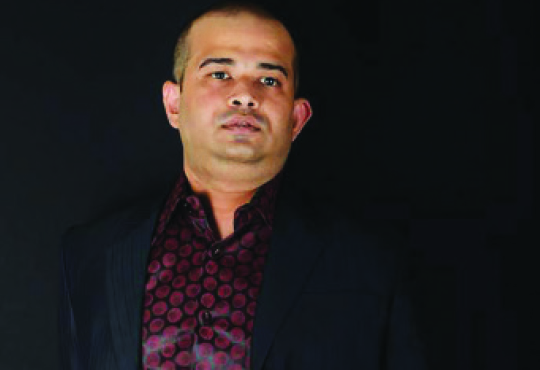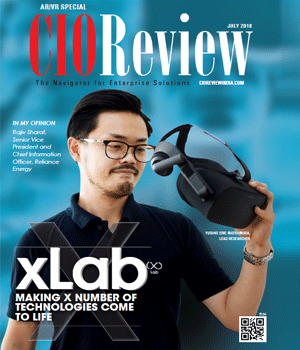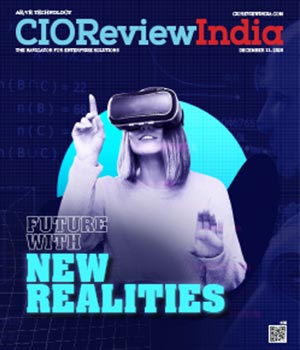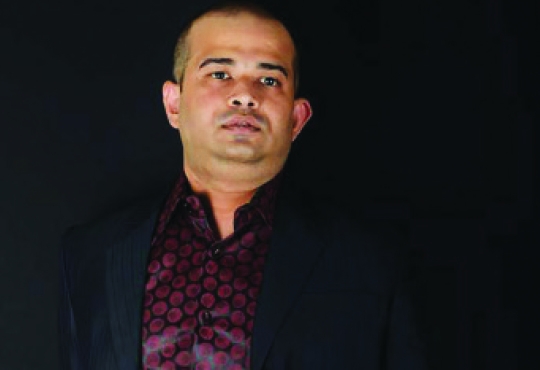Virtual Reality -Decrypting Healthcare Of The Future
Vinay Lohar, Manager IT, Siemens | Wednesday, 29 August 2018, 11:48 IST
 We often ask ourselves a q u e s t i o n , 'what does it really mean to be civilized?’ We have come a long way as humans, although not in the manner an intelligent species is supposed to behave. Humans have largely been mediocre. We fail to realize that we as existence are one. We as humans are even more connected. Evolution has not given humans the ability to decipher a lot of critical random signals, but technology hopefully will. Technology in the hands of the Super-Intelligent is a boon and unfortunately, technology in the hands of the Mediocre is a curse. We are waiting for 'Homo Novus' the new man who is sane if not super intelligent, cares for the planet, its ecosystem and its future.
We often ask ourselves a q u e s t i o n , 'what does it really mean to be civilized?’ We have come a long way as humans, although not in the manner an intelligent species is supposed to behave. Humans have largely been mediocre. We fail to realize that we as existence are one. We as humans are even more connected. Evolution has not given humans the ability to decipher a lot of critical random signals, but technology hopefully will. Technology in the hands of the Super-Intelligent is a boon and unfortunately, technology in the hands of the Mediocre is a curse. We are waiting for 'Homo Novus' the new man who is sane if not super intelligent, cares for the planet, its ecosystem and its future.
This evolved human (men and women alike) will lead us to an advanced civilization. It is only a matter of time till we see humans who care for this planet. Although any conjecture about such advanced civilizations is a matter of sheer speculation, one can still rely on the trend that we see where we humans fight for clean air, clean water and abundance of trees and animals with a clear focus on technologies for a better life. Technologies like Artificial Intelligence (AI), Virtual Reality (VR), Augmented Reality (AR) and concepts like Internet of Things (IOT) and Big Data Analytics (BDA) if used in the right way will soon lead us to this advanced civilization.
VR has already found its domain in entertainment, space simulation, with. By 2020 VR is expected to be a USD 3.8 billion market. It will soon change the way one used to conceptualize healthcare among others. It is already impacting the world of medical imaging. EchoPixel’s True 3D system renders standard ultrasound, CT scan and MRI images into 3D forms. These highly detailed images provide physicians with a more accurate understanding of patient structures and diseases. Sergio Aguirre founder of EchoPixels True 3D says, “With the ability to more fully understand a patient’s anatomy, doctors will be able to produce better outcomes for patients, in less time.”
“VR has already found its domain in entertainment, space simulation, telerobotics, and healthcare, to start with”
In a couple of decades, your family doctor will start using a VR headset to treat you right from his office without your physical presence. Surgeries, medical investigations, and therapies will soon be integrated with VR. AI and IOT will only compliment your doctor’s efforts to provide you the right treatment. Once AI reaches the stage of Singularity or Artificial Super Intelligence (ASI) the entire perspective of healthcare will change.
One of the toughest challenges we have faced is to understand the intricacy of a human mind. Behavior analytics and advanced cognition will help us in the future to determine individual thought patterns, inner strength, and response to stimuli. Today we expect VR to play a key role in cognitive and behavioral neuroscience, such that neuropsychiatry will witness revolutionary developments in the next two decades. The University of Washington recently developed a VR game called SnowWorld which was widely used to distract patients from painful procedures effectively, owing to which, it is possible to treat without anesthesia.
VR will be used extensively to conquer Phobias, although its success rate is yet to be ascertained. One of the first prominent healthcare applications to treat spider phobia is SpiderWorld. Pain Consultants of East Tennessee conducted a minor study by deploying VR for treating chronic pain patients. The study looked at 30 patients with chronic, non-malignant pain. Each received one 5-minute session with a VR program. By the end of the study, 10 patients reported complete pain relief.
Another big challenge in the history of healthcare has been to provide students’ real-life, hands-on experience, while still keeping patient safety at the forefront. One way to accomplish this is through the use of simulation systems based on VR. An interesting program at Penn State Health’s Simulation Center also explored the possibility of instructor development through simulation tools such as mechanical models and virtual reality simulators. This approach is beneficial in offering the students hands-on training in an array of minimally invasive procedures which, with simulation practice, can minimize the complications experienced by patients.
If we look at the Big Picture, VR will reduce hospitalizations and readmissions. This means patients that need urgent attention will get it without having to wait or search for another hospital. This could be more relevant for countries where population is under control. Although it is impossible to predict the absolute future of VR in healthcare for an advanced civilization, its broad outlines can be analyzed and all VR needs is the right direction in order to do wonders for health care.
We often miss one of the most critical aspects when we talk about technology; security. In a world of AI, IOT and Big Data we need to assure that technology is not exploited. VR could expose entities that deploy this technology to serious security threats which we have experienced in the last decade. VR by its very nature is highly susceptible to reverse engineering among other vulnerabilities. It is imminent that Security is considered in every aspect of the product lifecycle, from the initial drawings on a whiteboard through all subsequent development cycles right to the final release of the product in the market.
The scope of VR in the future is infinite, and it seems that everyone from an electronic sector, education, entertainment companies, healthcare to national defense— is converging on this technology. There is much left to explore and the best is yet to come.
CIO Viewpoint
EMOTIONAL AI: A Picture Is Worth A Thousand Words
By Bhosale Deepak, General Manager-IT, Asian paints
Virtual Reality -Decrypting Healthcare Of The...
By Vinay Lohar, Manager IT, Siemens
CXO Insights
Augmented And Virtual Reality In An Enterprise...



.jpg)

